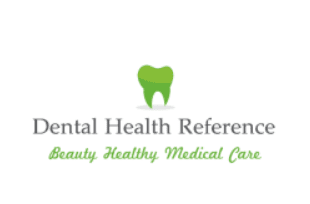
Dental implants are a valuable investment in your oral health, providing a durable and natural-looking solution for missing teeth. However, to ensure the long-term success of your dental implants, it’s crucial to take proper care and make some adjustments to your lifestyle during the initial healing period. In this blog, we’ll discuss the things you should avoid after getting dental implants Sydney to promote their success and maintain your oral health.
- Smoking and Tobacco Use
One of the most critical habits to avoid after getting dental implants is smoking or using any form of tobacco. Smoking can slow down the healing process and significantly increase the risk of complications, such as infection and implant failure. The chemicals in tobacco can also have adverse effects on the soft tissue and bone around the implant site. If you’re a smoker, it’s an excellent time to consider quitting for the sake of your implant’s success and overall health.
- Consuming Alcohol and Caffeine
Both alcohol and caffeine can have a dehydrating effect, which is not ideal during the initial recovery phase after implant surgery. Dehydration can slow down the healing process, so it’s advisable to limit or avoid alcohol and caffeine during this period. Staying well-hydrated with water and clear fluids will help promote optimal healing.
- Hard and Crunchy Foods
After dental implant surgery, you should avoid hard and crunchy foods that require significant chewing force. These foods can put undue pressure on the implants and surrounding tissues, potentially leading to discomfort and complications. Instead, opt for a soft and smooth diet during the initial healing period, which may include soups, yogurt, mashed potatoes, and well-cooked vegetables.
- Hot and Spicy Foods
Hot and spicy foods can irritate the surgical site and cause discomfort. It’s best to avoid these types of foods, as they can slow down the healing process and increase the risk of complications. Stick to mild and lukewarm options until your oral surgeon advises you to resume a regular diet.
- Directly Brushing the Surgical Site
While maintaining good oral hygiene is essential, it’s important not to brush the surgical site directly during the initial healing period. Instead, follow your surgeon’s instructions for gentle rinsing with a saltwater solution or an antimicrobial mouthwash. Once your surgeon gives you the green light, you can resume your regular brushing routine with a soft-bristle toothbrush.
- Strenuous Physical Activities
Engaging in strenuous physical activities, such as intense workouts, heavy lifting, or contact sports, can increase your blood pressure and potentially disrupt the healing process. It’s advisable to avoid these activities during the initial days or weeks following implant surgery. Light, low-impact exercises are generally more suitable during this period.
- Using Straws
Using a straw to drink beverages may create a sucking motion that can increase the risk of dislodging blood clots and affecting the healing process. It’s recommended to avoid using straws for drinking during the initial healing period.
- Neglecting Follow-Up Appointments
Regular follow-up appointments with your oral surgeon or dentist are essential for monitoring the progress of your dental implants. These appointments ensure that the implants are healing correctly and that any potential issues are addressed promptly. Neglecting these check-ups can lead to complications going unnoticed and may affect the success of your cheap dental implants Sydney.
- Ignoring Pain or Swelling
It’s normal to experience some discomfort, swelling, or bruising after dental implant surgery. However, it’s crucial not to ignore these symptoms. Pain and swelling can be managed with pain medications and cold compresses as recommended by your oral surgeon. If you notice unusual or worsening symptoms, such as severe pain, excessive bleeding, or signs of infection, it’s essential to contact your oral surgeon immediately.
- Skipping Oral Hygiene Practices
While you should avoid directly brushing the surgical site, it’s vital to maintain good oral hygiene around your other teeth and dental implants. Neglecting oral hygiene can lead to infection and gum issues that could compromise the stability of your dental implants. Follow your surgeon’s instructions for cleaning and rinsing, and continue your regular oral hygiene practices as directed.
Dental implants are a long-term solution for missing teeth, and taking proper care during the initial healing period is crucial for their success. Always follow your oral surgeon’s post-operative instructions and attend follow-up appointments to ensure the best possible outcome for your dental implants. Talk to the dentist to know about the dental implants cost Sydney applicable to you.
